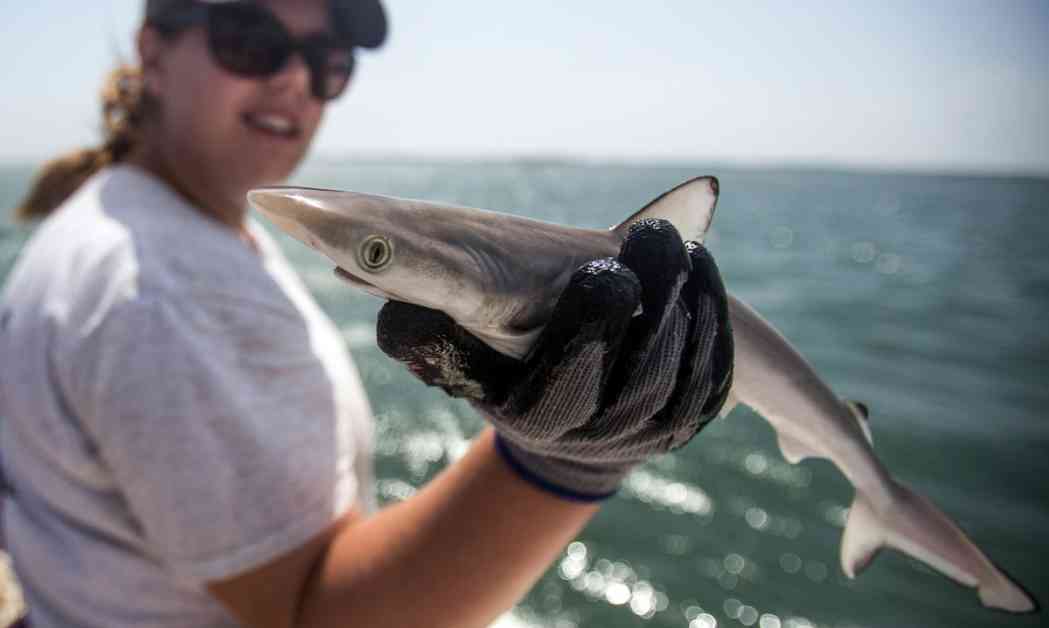Sharks swimming off the coast of Brazil have been found to have cocaine in their systems for the first time. These sharks, known as Brazilian sharpnose sharks, were tested and all of them showed positive results for cocaine in their muscles and liver. This discovery raises questions about the impact of this drug on sharks, as it has never been studied before.
Researchers have also found high levels of other contaminants in various shark and ray species, including metals, pesticides, PCBs, and PFASs, among others. These pollutants can have harmful effects on the health of these animals and contribute to environmental contamination.
The presence of cocaine in sharks is believed to be a result of drug-contaminated urine entering waterways due to the lack of sewage treatment in many areas of Brazil. Additionally, drug runners may dump cocaine into the ocean to avoid detection. While some studies have suggested that sharks may investigate floating cocaine bales, researchers believe that contamination through prey or water exposure is more likely.
The study focused on Brazilian sharpnose sharks, with female sharks showing higher concentrations of cocaine than males. Pregnant females were also found to have elevated levels of the drug, raising concerns about the potential impacts on developing fetuses. Further research is needed to understand the full extent of contamination in sharks and rays in the region.
As scientists continue to investigate the effects of cocaine on sharks, it is important to remember two key points. Firstly, consuming shark meat should be avoided due to overfishing and high levels of contaminants. Secondly, individuals are urged not to dispose of trash, including illegal drugs, into the water, as this can have negative consequences for marine life.
Moving forward, researchers plan to expand their testing to include rays in the nearby estuary and migratory fish to assess the extent of contamination. By understanding the sources and impacts of pollutants in marine ecosystems, efforts can be made to protect the health of aquatic animals and their environments.




